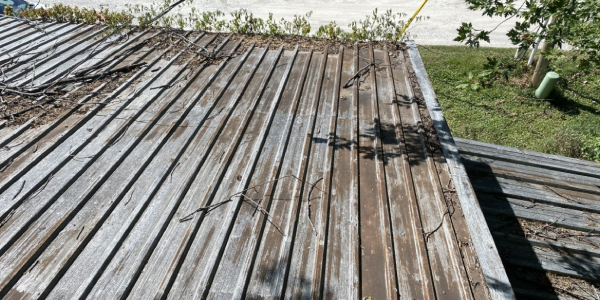How to Maintain Your Roof During Winter

By Oklahoma Roofing Contractors Association.
Follow the seven tips below to keep your roof operating at peak performance through the winter months.
Winter means colder temperatures and spending more time indoors. Will your roof support your home through the season?
Maintaining your roof is a year-round project, but it is especially important during the winter months. Snow, ice, wind and freezing temperatures all come with winter and all take a toll on your roof.
Taking the time to properly safeguard your roof is paramount. Below are seven ways you can maintain your roof during the winter to make sure it’s operating at peak performance.
1 - Remove snow ASAP
Snow on a rooftop can look postcard perfect. Unfortunately, it can wreak havoc if it’s left too long. Along with ice, snow creates a heavy weight on your roof. This means that anywhere it's even slightly compromised is at risk of major damage.
If precipitation remains on your roof, it can create what's known as an ice dam. Water on a roof is nothing new, but it's the re-freezing that creates the issue. When temperatures drop below freezing (usually overnight), the melted ice hardens back up again. As a result, it creates a dam in or around your gutters, backing up any runoff precipitation. This can loosen your shingles or even create leakage.
Remove all ice and snow from your roof as quickly and thoroughly as possible to keep it dry longer. As the conditions can make the surfaces slippery, it's wise to hire a roof maintenance company to take care of the issue for you.
2 - Repair flashing
When starting your wintertime roof maintenance routine, first take a look at your existing flashing. Even if it was installed correctly years ago, over time it can become warped or even loosened.
If it's faulty, get it fixed as soon as you can. With improper flashing, snow and other icy precipitation are allowed to enter your roof more freely. If too much excess moisture builds up, you're looking at an interior leak.
The same concept applies to your shingles. If any are beginning to peel up or chip, have them replaced immediately. Left unsecured, they also allow moisture to build and seep into your ceiling.
3 - Check your gutters
One of the first places freezing precipitation will accumulate is your gutters. That's why it's important to check them regularly for any signs of ice dams. One rule of thumb is that if you see icicles hanging off of them, you're likely already looking at a build-up.
The first concern is that if they're filled with ice, your gutters can simply become weakened, unable to hold all that weight. As a result, they can tear away from your home. This creates significant structural damage and leaves you slapped with a major repair bill.
Getting rid of all ice dams at the first sign of formation is key to keeping your gutters strong and working properly.
4 - Remediate all wind damage
Inspect your roof for any signs of wind damage, and take steps to repair any spots that may have become compromised. You're specifically looking for missing, broken or damaged shingles or other roofing materials.
If left untreated, these vulnerable spots won't just open your home up to leaks, they'll also serve as breeding grounds for bacteria, mold and mildew. So, contact your roof maintenance professional to come patch or replace any areas that wind tears away.
5 - Check your attic ventilation
You might not realize it, but the performance of your attic is directly linked to the performance of your roof. Why? If your attic is poorly ventilated or insulated, it can expose your roof more directly to the winter elements, allowing problems like ice dams to form.
When performing your roof maintenance inspection, go inside and make sure your attic has sufficient insulation and has solid routes for ventilation. Keeping the airflow consistent is key to keeping your roof as protected as possible.
6 - Clear all debris
Before the winter storms roll in, make sure your roof and all surrounding elements such as gutters, flashing and downspouts are free of debris. This can include pine needles, leaves and other grime that accumulates on its surface.
By doing so, you'll help make sure that if a storm does hit, the moisture doesn't have an extra grip on your roof. If it sticks to debris, those little pieces can become water-logged and eventually rot, leading to a leak or other damage.
Take a rake or broom and clear as much as possible in the autumn months to keep your roof clear all winter long.
7 - Hire a professional inspector
While there are some roof maintenance tasks you can perform yourself, if you really want to get your home in quality shape for winter, it's best to hire a professional roofing company.
By letting the experts take the reins, you'll not only save your back and ensure your safety, you'll also have the peace of mind that everything is properly checked and repaired. That way, you can enjoy the winter and all the festivities it brings without having to stress or worry about the condition of your roof!
Have a question? AskARoofer.
Find your local roofing contractor in the RoofersCoffeeShop® Contractor Directory.
Original article source: ORCA










Comments
Leave a Reply
Have an account? Login to leave a comment!
Sign In